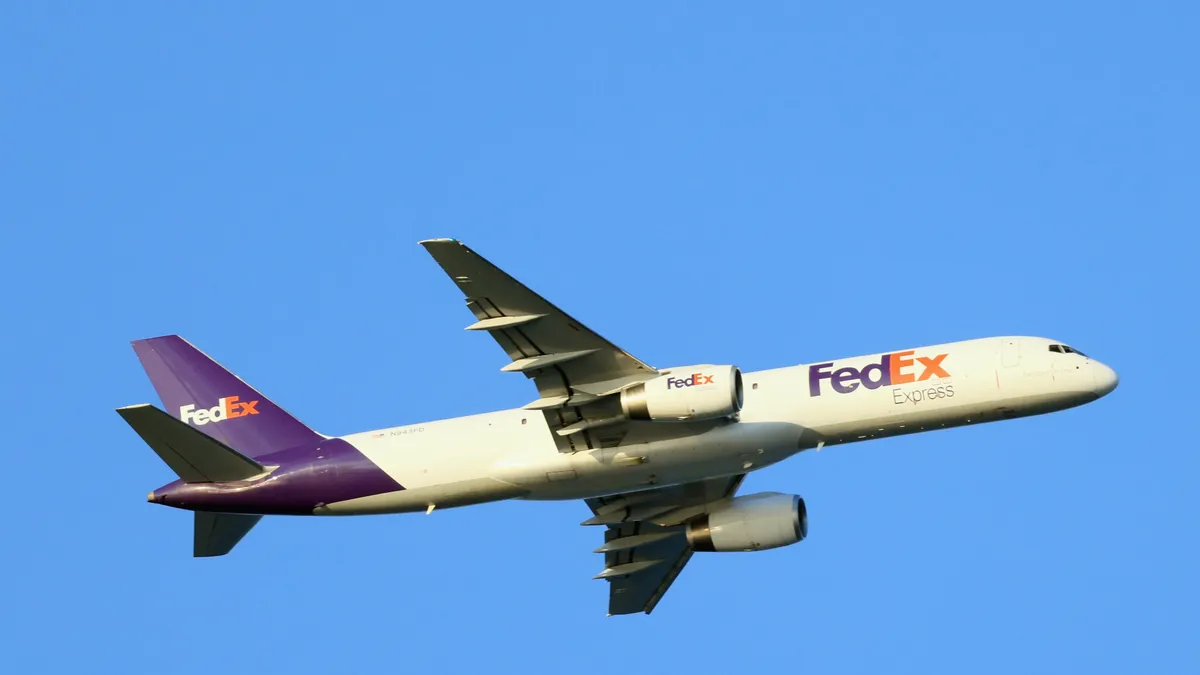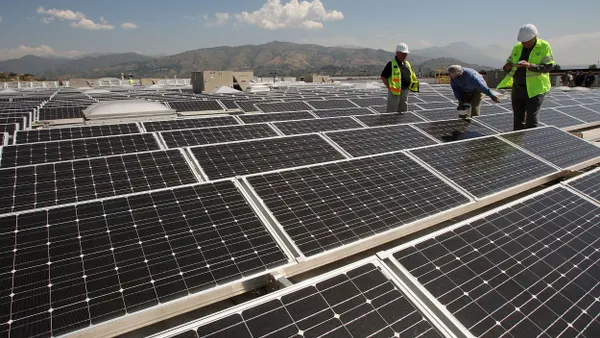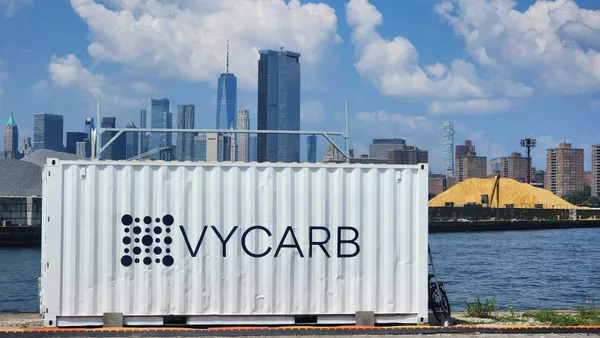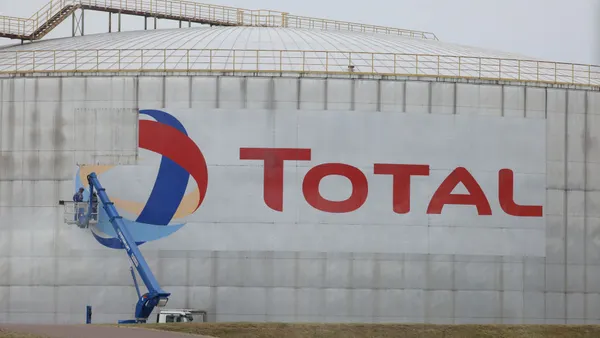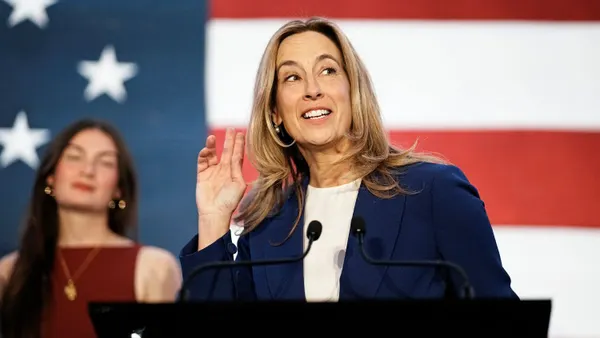Dive Brief:
- FedEx entered an agreement to purchase 3 million gallons of blended sustainable aviation fuel from SAF and renewable diesel fuel producer Neste. The deal is the ”largest SAF purchase executed by a U.S. cargo airline at LAX to-date,” according to a Tuesday press release.
- Neste will deliver 3 million gallons of 30% unblended renewable jet fuel over a year, and the blended form of its fuel will account for one-fifth of FedEx’s projected jet fuel use at LAX for the year, according to the release.
- FedEx has a goal of hitting carbon neutrality by 2040, and its Chief Sustainability Officer Karen Blanks Ellis said in the release that, as the world’s largest cargo airline service, FedEx needs the SAF market to further grow and develop to hit its goal. SAF still made up less than 1% of global jet fuel use in 2024 and is growing “disappointingly slow,” according to the International Air Transport Association.
Dive Insight:
This deal represents FedEx’s first major deployment of SAF in the U.S., the company said. Blanks Ellis said in the release that the aviation network is Fedex’s largest user of fuels globally and, thus, represents its “biggest opportunity to drive down emissions.” Nearly 60% of the company’s operational emissions come from jet fuel use, according to the company’s sustainability page.
In its unblended form, Neste’s unblended SAF can represent an 80% greenhouse gas emissions reduction over its lifecycle, compared to conventional jet fuel, the release said. It is not immediately clear how much of a GHG reduction the blended SAF represents. Neste’s SAF is made entirely from renewable waste and raw material residue like animal fat waste and used cooking oil.
“Procuring SAF is an important component of our aviation emissions-reduction strategy in the coming years, and we are pleased to have executed a deal with Neste to begin using this fuel in our air operations,” Blanks Ellis said.
FedEX CEO of Airlines Richard Smith, also the chief operating officer for international operations, said the cargo company’s first U.S. deployment will help bolster “the aviation industry’s efforts to source and use more SAF.” However, he also acknowledged that further growth is needed in the market.
SAF is still expected to comprise less than 1% of global jet fuel use in 2025, according to a December report from IATA. Last year, American Airlines CEO Robert Isom looked to sound the alarm about the pace of decarbonization in the aviation industry, and said in the airline’s sustainability report that “there’s an urgent need for more and faster action across the public and private sectors.”
Clarification: The body of this story has been updated to clarify that FedEx's fuel use projections pertain to use at LAX.


